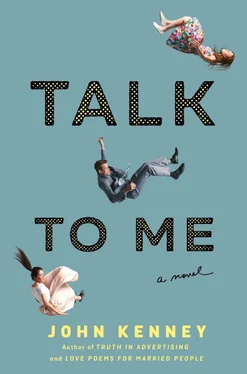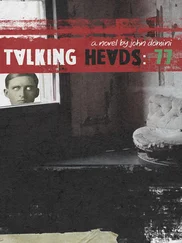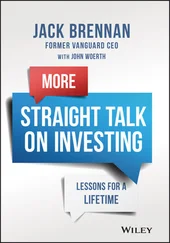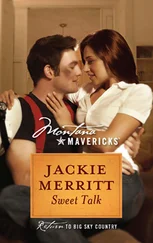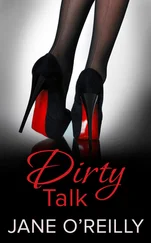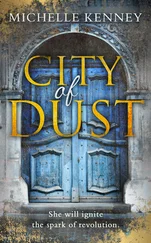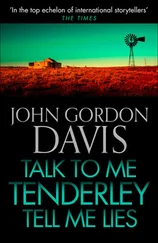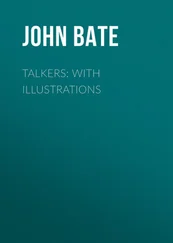In the large and powerful coastal cities, in the hipster, craft brew cities that dotted the Great Plains, people made fun of these things. Ted understood people who bought Hallmark cards. These were his people, his audience. He spoke to them without irony. Irony was the purview of the late-night talk show hosts who felt their worldview wasn’t simply different but superior to others. They enjoyed making fun of people. Mean-spirited but with a smile. Ted believed this was part of the reason the country was so divided. Basic rules of civility were dead. The new nightly news—the late-night talk shows—continued to try to shock, pushing us further and further adrift.
But deep down in places he rarely allowed himself to go, Ted knew he was a lie. A handsome, large-headed, reasonably intelligent lie. They had made him this thing, this… character, this cartoon, really, where once, long ago, Ted had been a reporter. A writer. Ted used to write much of the news. Well, certainly some of the lead-ins. He’d been a good writer. He cared about the words, enjoyed going over the copy with the news writers. But that was so long ago. Now he barely glanced at it pre-broadcast.
And each year it seemed to get worse, more insipid. Two years ago, there was a mandate from the new owners that “the stories should grab us like the final scene of a blockbuster film. Hope. Joy. Tears. Also, kittens where possible.” This had come when a large cable company had bought the network and it was only reinforced when an even larger entertainment company bought the cable company. They’d flown Ted and Lou to Los Angeles and had them meet with film producers and screenwriters for a week. “Creating better news.” Ted and Lou thought it was a joke. Until they learned from colleagues that the other major networks had done exactly the same thing.
And yet Ted was convinced they could run repeats and no one would be the wiser. Two nights ago, they had done a story where Ted led in with this line: Thousands of Iraq’s Sunni population are fleeing from fighting with ISIS while that country’s Shiite population remains oddly silent. A reporter’s voice was heard over the footage they cut to. “We have nothing,” a mother of three said. “We have nowhere to go. I have a family. Who will help?” But instead of footage showing refugees on jam-packed roads from the Agence France-Presse Middle East arm, they accidentally ran footage of celebrities at the Cannes Film Festival. Eight million viewers and the network had received exactly zero calls about this.
For some time now, Ted had felt less of a grip, once so firm (look at the old Nielsens if you don’t believe him), on the world and his place in it. He was surprised to learn that the world had passed him by. He’d assumed he was still important. But he wasn’t. What was Tinder? Bumble? Grindr? Swipe right. Swipe left. Hookups. App world. Respond instantly. Send instantly. React instantly. Why reflect? The speed at which it all moved stunned him. But it wasn’t merely that. It was the new vocabulary of the world. The crassness, the rudeness, the shock value, the push all boundaries. The new comedians who were hailed as geniuses. Pussy . Twat . Cock. Was this funny? People laughed. Ted winced. Was he a prude? Had he fallen that far behind? Was he that old? Everything seemed meaner to him now. Crueler. Where was Carson and a good interview with Jonathan Winters or Raquel Welch? Where once people marched, now they tweeted. They commented, instantly, often angrily, viciously, sometimes anonymously. They trolled. They said the vilest things, the cruelest things. Depressed? Thinking of killing yourself? Do it. Do it, faggot. We’ll watch.
Ted had interviewed Google cofounder Eric Schmidt a while back. One line from the piece stood out for Ted. “The internet is… the largest experiment in anarchy that we have ever had.”
Ted looked up now and saw his image, in profile, on a monitor. Mouth slightly open, eyes wide and a bit glassy. Who is that old man, he thought. Who is that tired-looking old man?
• • •
“Thirty seconds,” Sean said, too loud, startling Ted. Ted touched the top of his head reflexively, feeling the bald spot. Something about it, about the naked, vulnerable skin seemed to symbolize his whole life. How do you explain to people that after a while the money ($11 million a year) doesn’t matter, that the houses don’t matter, the fame doesn’t matter? How do you explain to a nation that prizes those very things above almost all else? How do you say to your eight million viewers each evening, viewers who think you have a dream life, a dream wife, a perfect daughter, that you are a vapid, empty shell of a person with almost no real relationships and little to no integrity, that you’d given up long ago on being a journalist?
Ted looked up, took a deep breath, and made a mental note of camera one’s exact position, because when they returned live he would look up into the camera as if he’d just been reading something important instead of a what he was actually looking at, which was a live feed of the Knicks game on his phone. And it was when he made his quick check that he saw the poor makeup woman. She was tapping the top of her own head and Ted was sure that she was mocking his bald spot, when, in fact, she was trying mightily to signal him to tamp down a few heavily starched hairs that were now standing up straight.
The history of the world is the history of miscommunication. War, divorce, comedy. She was the embodiment of Ted’s expanding nude crown, and he was pissed because she was in his eye line. Which, everyone on this set knew, was a no-no. Indeed, it looked like she was holding up a cell phone and taking a picture of Ted.
In fact, Natalia was taking a video of Ted. She’d begun feeling a bit better and was excited about being on the set of the nightly news. She wanted to record Ted and show it to her sister. This was strictly forbidden by Ted. Everyone knew that. But despite his spiraling mood, Ted decided to roll with it. He was too uptight. Everyone told him this. Well, perhaps intimated it, as they were too afraid of him. He’d roll with it. Look at Ted rolling. What a chill guy.
And why the hell hadn’t Franny at least texted her father a happy birthday? Ted wondered, a cocktail of anxiety and anger building in him. The communications department at the network maintained Ted’s Facebook page. Well-wishers had posted birthday greetings on Ted’s wall by the score. Not a word from his own daughter.
Sean started the countdown. “Quiet, please. In five, four…”
But he was also Ted Grayson and this was the set of the nightly news and this was serious business, as his acting in a few seconds would soon warrant and why was this total stranger in his goddamned eye line? Why didn’t people take Ted more seriously and show him some respect? Just because he wasn’t a firefighter or a cop or a soldier? He’d lived these events. He’d been there. He’d been in war zones. (And had the promos to prove it.) Granted he was a mile back from any front line, in a pressed shirt and air-conditioned tent, but still. He was at Ground Zero, covered in that dust, that plastic-death smell that haunted New York for months while the pile smoldered. Okay? He was in Oklahoma City. In Sandy Hook. At the Madrid bombings. At the riots in Ferguson. In Cairo for the Arab Spring.
Ted couldn’t find his water. They hadn’t refilled it after he spilled it. He felt a dry patch at the back of his throat. He wondered if he was coming down with something. No water. No time. Ted coughed to clear his throat and get some saliva going. His breathing was way off and he pulled his head up the same way he did every time, assuming his character, his best Ted expression, and there, just to the left of camera one, in his eye line, was the makeup woman, still there, only now she was laughing at something with one of the crew and Ted was sure she was laughing at him, though, in fact, she had just said to the crew member, with giddy delight, “This is so cool.”
Читать дальше
